14. Don’t Look Now (1973)
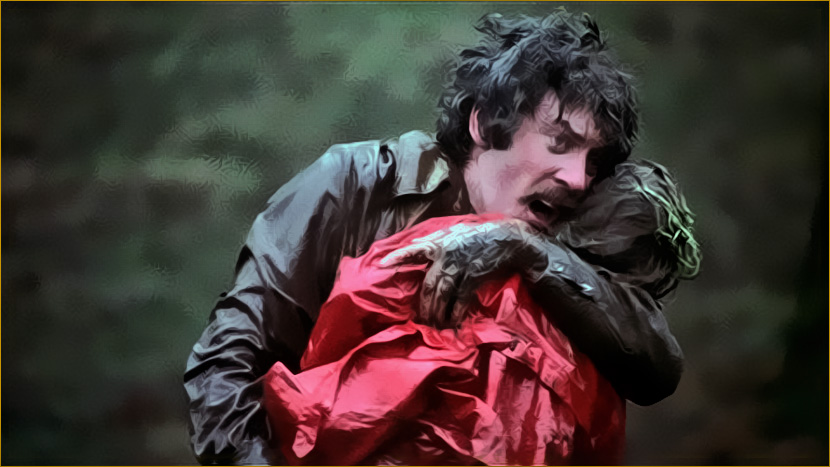
Based on the short story by British novelist Daphne Du Maurier, who was also responsible for the novelette on which Alfred Hitchcock used to base his film “The Birds”, “Don’t Look Now” was way ahead of its time upon its release combining a number of genres and ideas effortlessly, whilst avoiding typical horror and thriller staples.
It follows a pair of grieving parents as they try to come to terms with the loss of their daughter and the strains it has on their own relationship. The film was praised upon its release for its convincing portrayal of the psychology of a loss.
The 1970s were a time in which Donald Sutherland began getting much deserved recognition as the strong actor he has since consistently proved himself to be, gaining praise for performances in “Steelyard Blues”, “Invasion of the Body Snatchers” and of course, “Don’t Look Now”, starring opposite Julie Christie, the already critically acclaimed actress, who played his onscreen wife. Both hand in some of the finest work of their careers as the grieving parents.
Filmed and edited masterfully, “Don’t Look Now” provides suspense and mystery with an unnerving atmosphere, which to this day is a masterclass in psychological thrillers.
13. Naked (1993)
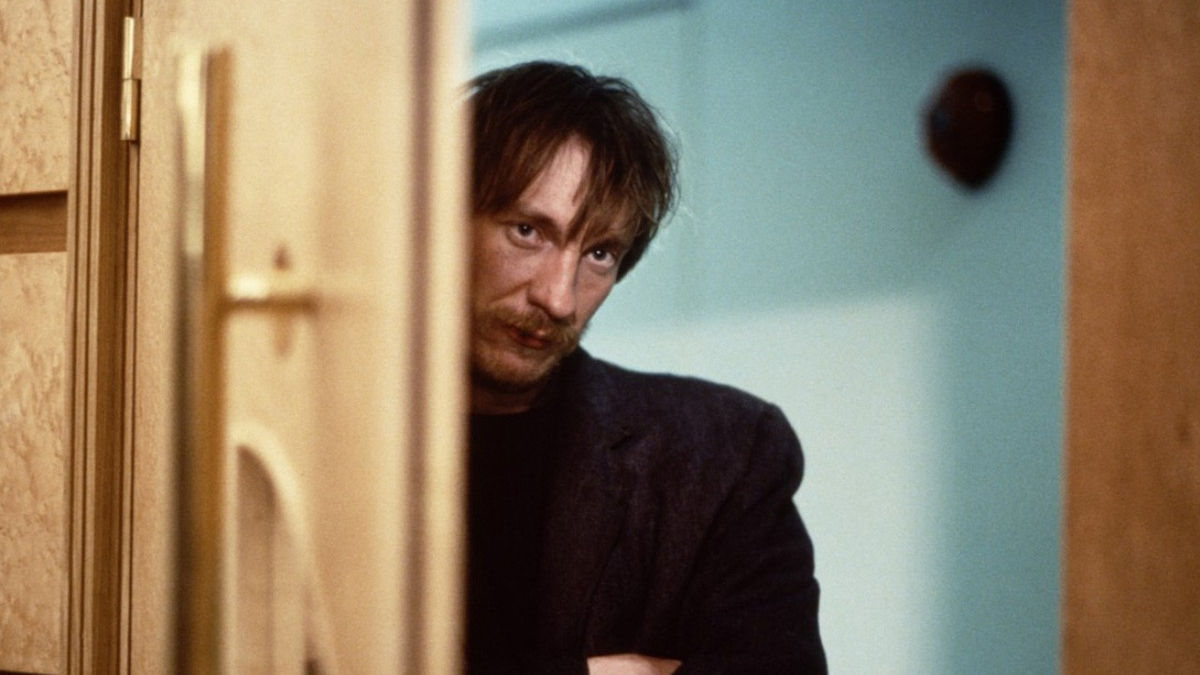
“Naked” is without a doubt the grittiest tale conjured by British screenwriter Mike Leigh, for the first time giving him international attention. It initially appeared at the Cannes Film Festival, where he walked away with the award for Best Director, and David Thewlis won the award for Best Actor.
This is the story of Johnny, played by Thewlis, who is on the run from his native hometown of Manchester for what appears to be a sexual assault. It is a compelling but hard to watch film that revolves around the unacceptable behavior of the male gender.
A dark comedy and also uneasy drama shows Leigh’s usual observation and social commentary at its most brutal, allowing most of the cast to have their input on the film through large intensive improvisation rehearsals whilst shooting. “Naked”, praised for its boundary pushing narrative alongside a hardworking and gutsy cast who clearly want to do their best under Leigh’s direction, creates a dark and chilling story that only gets harder to watch as each minute passes.
12. Monty Python’s Life of Brian (1979)
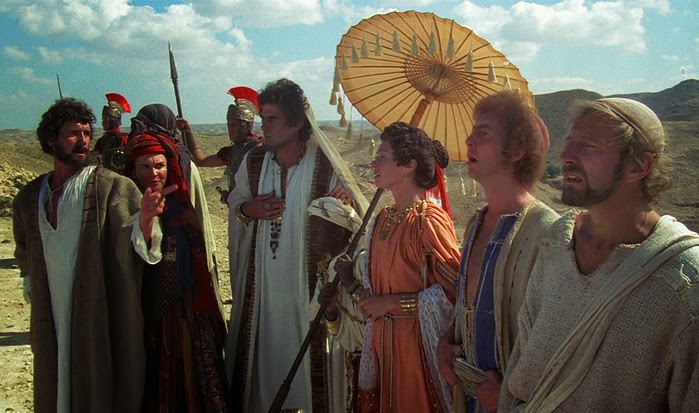
Due to the subject matter of “Life of Brian”, this film was initially met with a number of local county as well as countrywide bans, and was certified as X-Rated in other countries. Due to its controversy it had funding pulled by the production company and eventually it was funded by The Beatles member George Harrison. The creators, Monty Python, used its notorious reputation as a selling point for its religious satire, without a doubt adding to its huge commercial success.
The film follows Brian, played by Graham Chapman, as he is mistaken for Jesus Christ prior to the commencement of wacky antics, witty humor and full frontal nudity. Chapman, along with John Cleese, Terry Gilliam, Eric Idle and the rest of Monty Python are both unapologetic and have no boundaries to where the ridicule ends.
“Life of Brian”, along with Monty Python’s other flagship film “Monty Python and the Holy Grail” are both British comedy gold, pushing boundaries for the times in which they were released and becoming cult classics standing the test of time and spanning generations, still watched as frequently today as they were upon release.
11. Kes (1969)
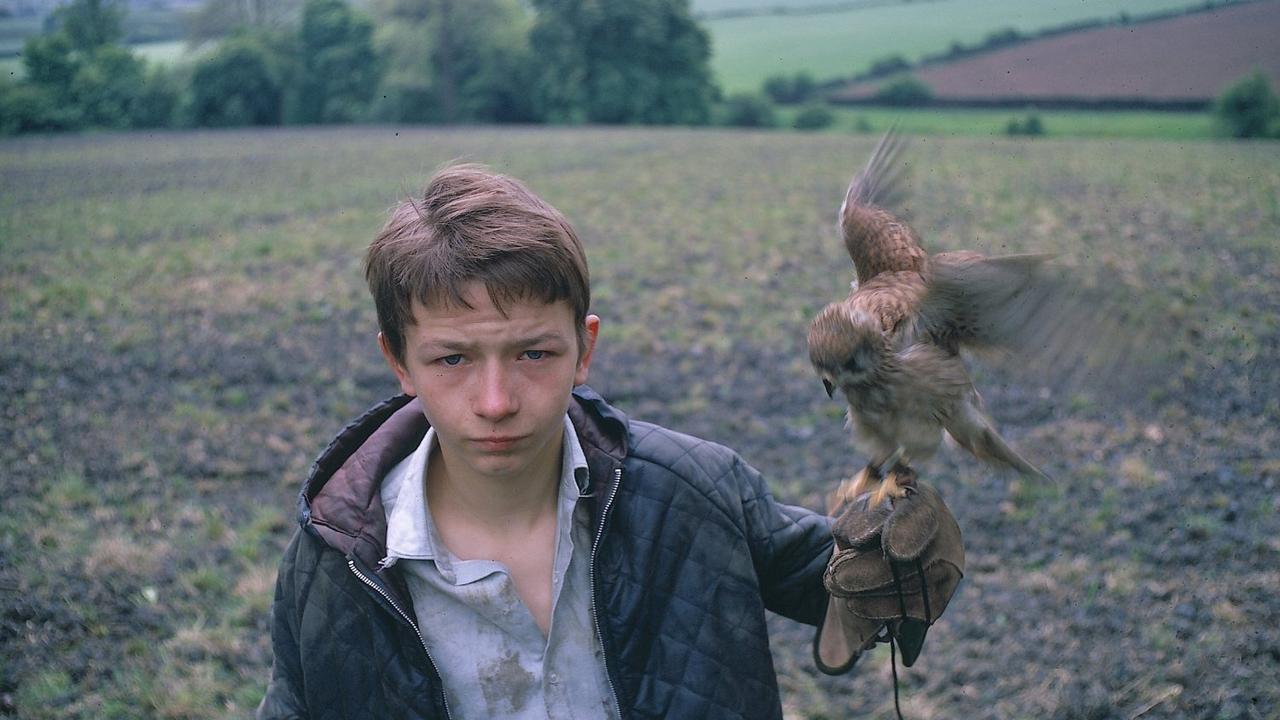
“Kes” provides a great insight into growing up in the mining communities of Yorkshire during the 1960s and 70s, based on the novel “A Kestrel for a Knave” by local author Barry Hines. This is a first-hand account of the author’s own experiences, showing the struggles that came with his home and school life, a classic tale that is loved by all locals who can strongly relate to the issues that arise throughout.
The film focuses on Billy, a victim of bullying both at home and at school, suffering at the hands of his family and his peers; he sees no escape route in life and fears a future of growing up working in the mining pits. A troubled adolescent who can’t keep out of trouble and a negative outlook on life, he is only destined to turn his life around with the help of a kestrel he begins to train.
The faithful to the novel Yorkshire accents within the film were the likely reason for its unsuccessful attempt in American cinemas. However, it is considered a much loved masterpiece by the British population since release, a simple yet compassionate coming-of-age film of redemption, providing a strong message of having hope when all is lost. A message that was all too relatable within mining communities.
10. The Ladykillers (1955)
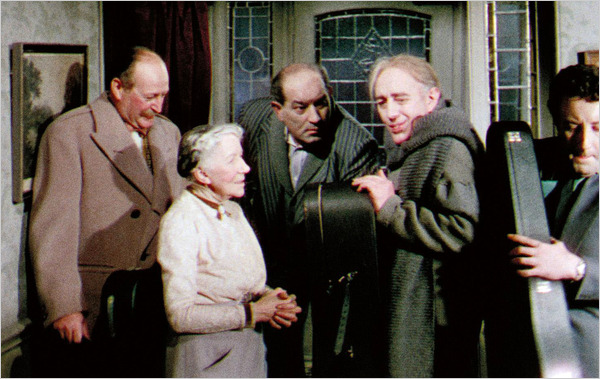
An incredibly British comedy where five criminals plan a bank robbery, leading them to rent rooms on a small cul-de-sac under the false pretence of being musicians, stands as one of the most memorable classics of British cinema. Fronted by Alec Guinness as Professor Marcus, some years before Guinness attained much wider recognition in a Galaxy far away, is in his comedic element as the leader of the criminal outfit.
Despite British comedy often missing the mark with American audiences, this crime caper was nominated for Best Original Screenplay at the Oscars. Following the antics of the five criminals is Mrs. Wilberforce, played excellently by British stage and screen royalty, Katie Johnson. She plays the old woman who rents the rooms to the proclaimed musicians, who later foils their plan.
Along with other comedy veterans including Peter Sellers (best known from “The Pink Panther”), this charming film with equal measures of dark and light hearted humor is considered by most as a classic piece of comedy gold, which is held with love and nostalgia by many generations to this day.
9. Withnail & I (1987)
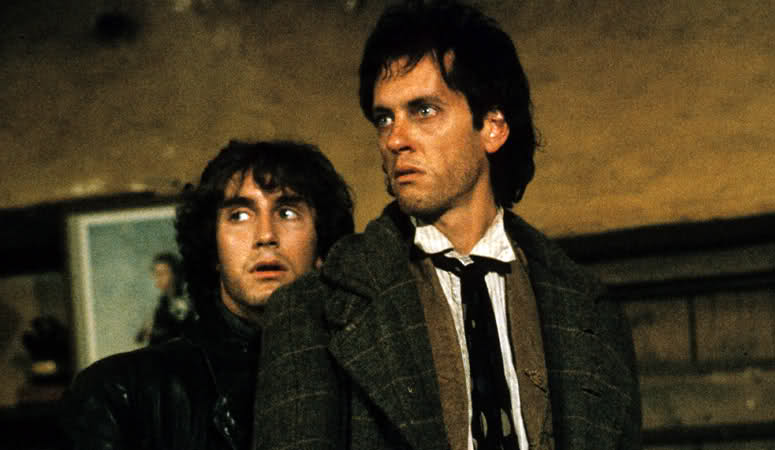
A dark comedy initially set in Camden Town, the heart of London’s bohemian scene, centres around two unemployable actors played by Richard E. Grant and Paul McGann, Withnail & Marwood, respectively, as they take a country holiday to escape the strains on their London life as slackers. Both actors involved have a fluent chemistry throughout the film as drunken best friends. Richard E. Grant, who had never consumed alcohol before, broke his abstinence as part of understanding the role.
Heading to Penrith, madness ensues and their friendship and survival skills are put to the test. A film that hasn’t aged, is instantly quotable, and is still as fresh today as it was upon release; this tale of friendship against the odds through thick and thin is heart-warming, unsophisticated and hilarious in even doses.
This black comedy also stars British film and theatre veteran, Richard Griffiths, who plays the hilarious Uncle Monty who takes a keen interest in Paul McGann’s character, Marwood, making for extremely uncomfortable viewing.
The pair leaves behind their run down flat in London, arriving in the countryside where resources are scarce and strange local folk are everywhere. Written and directed by Bruce Robinson, who has been involved in minimal projects since “Withnail & I”, here spins a crude and peculiar account full of madness and wit that is like no other.
8. Trainspotting (1996)
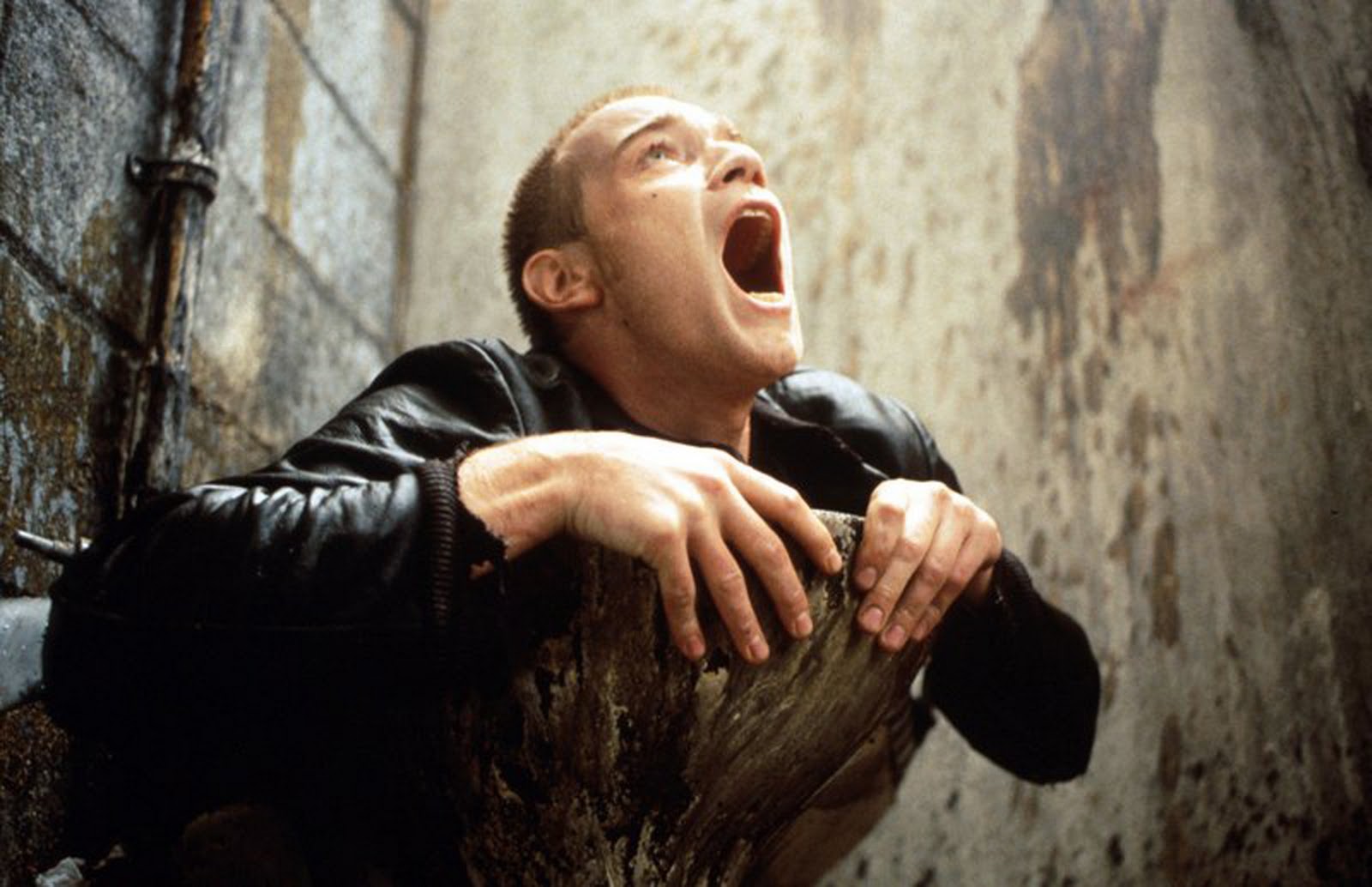
This motion picture directed by Danny Boyle is a reworking of Irvine Welsh’s bestselling novel, which takes place in Edinburgh, Scotland. “Trainspotting” plays out as a darkly humorous and at times harrowing tale of escapism from the real world and drug culture in the 1990s. The original novel that it’s based on is written in Irvine Welsh’s usual style, making adequate room to be gloriously disgusting and unbearably horrific in equal measures, making this an uneasy, unrelenting watch from start to finish.
The film manages to show how taking drugs can provide meaning and structure to worthless lives, starring Ewan McGregor as Renton and Robert Carlyle as Begbie, amongst others, who are all fully immersed in their roles, letting the lid off and the madness ensue. Kelly MacDonald, starring in her first role playing a young schoolgirl dragged into the immorality by Renton, is brilliant, discovered by Danny Boyle for not standing out amongst others.
Clearly a strong influence of the equally stunning “Requiem for a Dream”, both of which could singlehandedly run an anti-drug campaign, “Trainspotting” is a cult classic that fans still ask for a sequel to, and a tale that shows the depravity to which humans can sink in their mission to avoid the predictability of a mundane life.